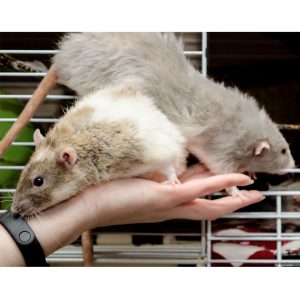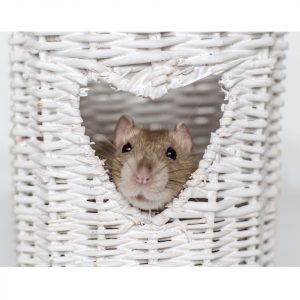Welcome to the ultimate guide to Syrian hamster care! Whether you’re a proud owner of these adorable little furballs or considering getting one as a pet, you’ve come to the right place.
The Syrian Hamster (also known as the Golden Hamster(1) or Teddy Bear Hamster) is an adorable companion for young and older people!
In this comprehensive article, we’ll walk you through everything you need to know to provide the best care for your Syrian hamster companion.
From essential supplies and cage setup to grooming tips, health concerns, and creating a stimulating environment, we’ve got you covered.
So let’s get started.
Essential Supplies for Syrian Hamsters
To ensure your Syrian hamster’s comfort and well-being, it’s important to have the right supplies.
Here are the key items you’ll need:
- Cage: Opt for a spacious cage with enough room for your hamster to move around and exercise. Avoid cages with wire floors to prevent foot injuries.
- Bedding: Choose a safe and absorbent bedding material, such as aspen shavings or paper-based bedding, to provide a cozy and clean environment.
- Food and Water: Syrian hamsters require a well-balanced diet of commercial hamster food, supplemented with fresh vegetables, fruits, and occasional treats. Provide a water bottle attached to the cage for easy access to clean water.
- Exercise Equipment: Syrian hamsters love to stay active. Provide an exercise wheel, tunnels, and chew toys to keep them entertained and promote physical exercise.
These are just the bare minimum supplies for a healthy pet Syrian hamster! So be sure to get them all.
You don’t need to get ALL the wheels and tunnels and chew toys (even though you may want to!), so just get a few and see which ones interest your Syrian hamster the most.
You can always get some more later.
Setting up a Comfortable Syrian Hamster Cage
Creating a safe and comfortable home for your Syrian hamster is essential.
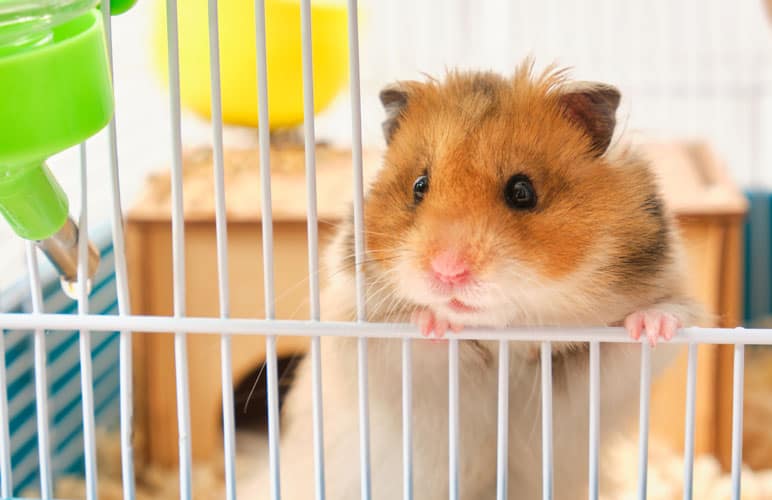
Here’s what you must consider when setting up your Syrian Hamster Cage:
- Location: Place the cage in a quiet area away from direct sunlight and drafts. Hamsters (like most rodents) are sensitive to temperature changes, so maintain a consistent room temperature between 65-75°F (18-24°C).
- Bedding and Nesting Area: Add a layer of bedding to the bottom of the cage, at least 2-3 inches deep, to allow burrowing. Provide a cozy nesting area with shredded paper or nesting material.
- Hideouts and Enrichment: Include hideouts and tunnels for your hamster to retreat and explore. You can use small wooden houses, PVC pipes, or even repurposed cardboard boxes.
- Cleaning Routine: Clean the cage regularly to maintain hygiene. Remove soiled bedding, wash accessories with mild soap, and replace the bedding at least once a week.
Syrian Hamster Grooming Tips
Keeping your Syrian hamster clean and well-groomed is important for their overall health, and it’s a big part of taking good care of Syrian hamsters.
Even though they tend to look out after themselves, there are always a few things you can do to help keep them in tip-top shape and with a nicely groomed visual.
Follow these grooming tips:
- Brushing: Use a soft-bristled brush to groom your hamster’s fur gently. This helps remove loose hair and prevents matting. Brushing can be a bonding experience between you and your hamster. And they’ll thank you for it.
- Nail Trimming: Trim your hamster’s nails regularly to prevent overgrowth. Use small pet nail clippers or human nail clippers with care to avoid cutting the quick. If you’re unsure, consult a veterinarian for guidance.
- Bathing: Syrian hamsters are generally clean and groom themselves. However, in rare cases, when they get dirty, you can offer them a sand bath. Use chinchilla sand or specialized hamster sand and provide a shallow container for them to roll in.
- Dental Care: Hamsters’ teeth continuously grow, so provide chew toys and wooden blocks to promote healthy dental wear. Regular chewing helps prevent overgrown teeth and potential health issues.
Creating a Safe and Stimulating Environment for Syrian Hamsters
Syrian hamsters are curious creatures and thrive in a stimulating environment.
Here are some tips to keep them happy and engaged:
Toys and Enrichment
Offer a variety of toys, tunnels, and puzzle feeders to provide mental stimulation and prevent boredom.
Rotating between different toys and introducing new ones keeps things exciting. If you provide toys that allow your pet to play, chew, and climb, it will encourage natural behaviors.
Interactive toys such as rubber balls or ropes can also provide a fun way to bond with your pet.
Also, be sure to supervise your pet while playing with toys and replace any broken or worn-out toys.
Most pet rat toys are a great option for Syrian hamsters as well!
Playtime and Interaction
Set aside dedicated playtime outside the cage to bond with your hamster. Ensure the area is safe, free of hazards, and always supervised!
Let your hamster explore and interact with you in a secure space. Use positive reinforcement, such as offering treats and praise, to encourage your hamster to come to you and interact with you.
Spend time petting and grooming your hamster (as we mentioned before), talking to them in a gentle, soothing voice, and playing with toys together.
You can also try training your hamster using clicker training techniques to teach them fun tricks and improve your bond with them.
Remember to always be patient and gentle with your hamster, and never force them to do anything they are uncomfortable with. Handle your hamster carefully!
Bonding with your hamster takes time and patience, but with consistent effort and a gentle approach, you can create a strong and loving bond with your furry friend.
Exercise Wheel
A solid-surface exercise wheel is a must-have for Syrian hamsters. We mentioned this before in the Essential Supplies section, but I want to reiterate this importance.
Choose a wheel with a solid running surface to prevent foot and tail injuries.
Wire or mesh wheels have been known to cause injuries such as cuts and broken limbs, and they can also damage hamsters’ tails, which are vulnerable and can easily become caught in the gaps between wires.
Furthermore, a solid-surface exercise wheel promotes proper exercise and movement for Syrian hamsters. They need daily opportunities to exercise and explore their environment, and a wheel is an excellent way for them to burn off excess energy and maintain their physical health.
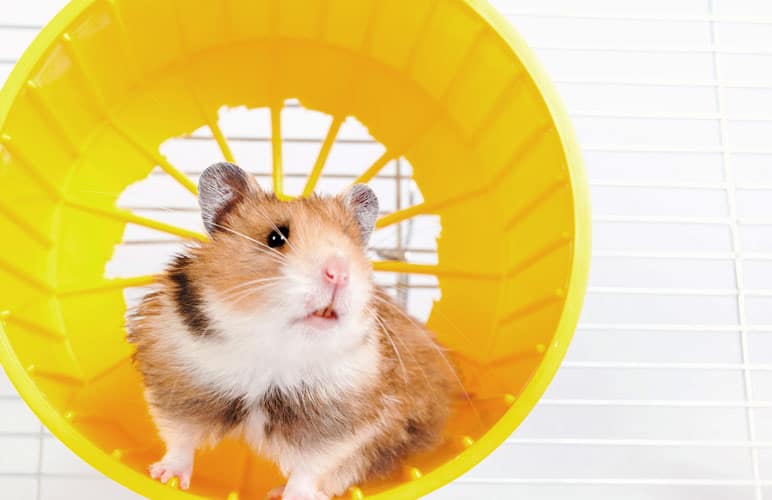
When choosing a solid-surface exercise wheel, be sure to select one that is appropriately sized for your Syrian hamster.
Wheels that are too small can cause discomfort and may not provide enough space for your hamster to run and exercise properly. Ideally, the wheel should be at least 8-10 inches in diameter and make minimal noise to ensure a peaceful environment for your hamster.
Especially the part about it making minimal noise. You don’t want to keep waking up in the middle of the night because your Syrian Hamster decided it’s exercise time!
Overall, investing in a solid-surface exercise wheel for your Syrian hamster is crucial for their health, happiness, and well-being.
Foraging and Treat Dispensers
Hide treats or small portions of food in puzzle feeders or scatter them around the cage to encourage natural foraging behavior.
This provides mental stimulation and engages their natural instincts. It’s also a fun activity to watch your Syrian hamster find those treats all by themselves!
Some examples of puzzle feeders include mazes, puzzles, and rolling balls with holes for the treats to fall out. You can also create DIY feeders using cardboard tubes or egg cartons filled with treats.
Scattering small amounts of food throughout the cage can also encourage foraging behavior. This mimics their natural habitat, where food is scattered around, and they must search for it.
Not only does this provide mental stimulation, but it also helps prevent boredom and reduces the risk of obesity by making them work for their food!
Common Health Concerns and Preventive Care
To keep your Syrian hamster in optimal health, it’s crucial to be aware of common health problems and take preventive measures.
Here are some important points you should know.
Signs of Illness
Watch for signs of illness, such as changes in appetite, sneezing, weight loss, lethargy, abnormal droppings, or any visible injuries.
If you notice any concerns, consult a veterinarian specializing in exotic pets.
A regular veterinarian will most likely not be equipped with the knowledge needed to care for your Syrian Hamster, so always go for a specialist in exotic pets if possible.
Regular Vet Check-ups
Schedule regular check-ups with an experienced veterinarian to ensure your hamster’s well-being.
Routine examinations and preventive treatments can help catch potential health issues early. It’s always best to prevent possible problems with your Syrian hamster than try to treat them later on.
During regular check-ups, your veterinarian will examine your hamster’s overall health, including eyes, ears, nose, mouth, teeth, skin, fur, and nails. They will also check for any signs of illness, disease, or other health concerns.
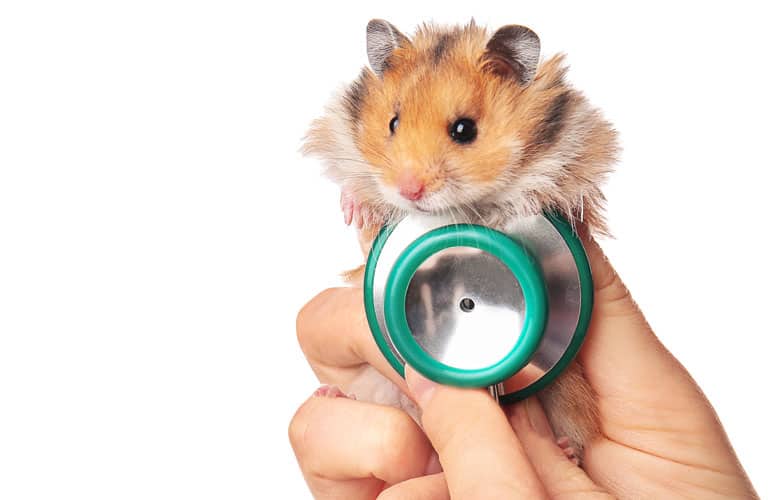
In addition, your veterinarian may recommend various preventive treatments during your hamster’s check-up, such as vaccinations or parasite control. They may also suggest dietary changes or other lifestyle adjustments to help keep your hamster healthy and happy.
Regular check-ups with an experienced veterinarian can help ensure that your syrian hamster is receiving the best possible care and treatment for their specific needs. By staying on top of your hamster’s health needs and catching potential problems early, you can help your furry friend live a long and happy life.
Hygiene and Cleanliness
It is also important to maintain a clean and hygienic environment for your Syrian Hamster to prevent the spread of disease and illness.
Regularly clean and disinfect their cage and accessories, provide fresh water and food daily, and avoid overcrowding or exposing them to other animals that may carry diseases. You should also change very worn-out toys to new ones if necessary!
Additionally, providing your Syrian Hamster with a balanced diet and regular exercise can help to promote good health and prevent illness.
Summing It Up
Congratulations on becoming well-versed in Syrian hamster care! By providing a loving and nurturing environment, you’re ensuring that your little friend leads a joyful and healthy life. The Syrian hamster is one of the pet rat alternatives we recommended before here, so do check the other possibilities!
Remember, the bond between you and your hamster will only grow stronger as you embark on this incredible journey together.
As you continue your exploration into Syrian hamster care, refer back to this guide whenever you need a refresher or encounter new challenges.
Our furry friends bring so much joy and companionship into our lives, and by providing them with the best care possible, we’re returning the favor.
Remember, your Syrian hamster relies on you for their well-being, so continue to learn, adapt, and shower them with love.


